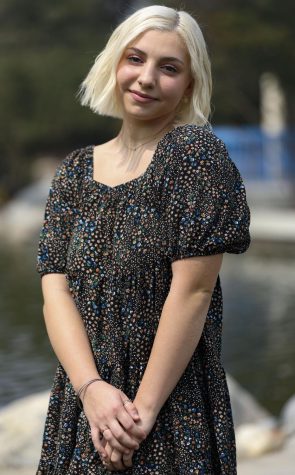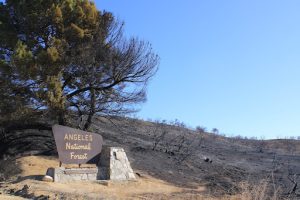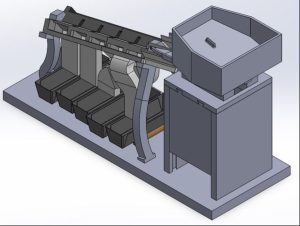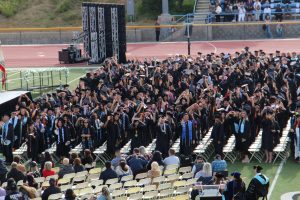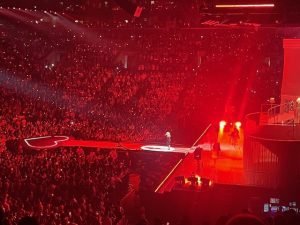Moorpark College’s Theatre Arts program converts Macbeth performance into a podcast
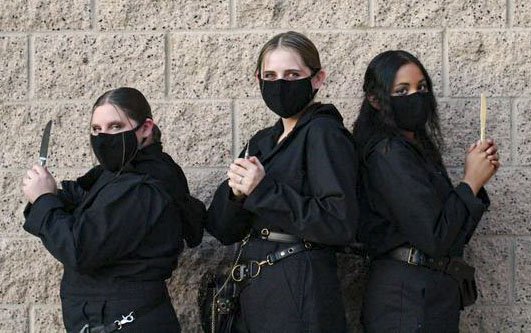
Maya Forster; sophomore theatre arts major, Peyton Pugh; senior theatre arts major, and Navya Hari; sophomore undeclared major, pose as their characters before filming the Macbeth trailer on Friday, Oct. 16 in Moorpark, CA. Photo credit: Audrey Lang
October 29, 2020
The Theatre Arts department’s Macbeth performance will now be a podcast. After being denied access to film on campus due to COVID-19 regulations, Moorpark College’s Theatre Arts program has decided to go old fashioned and make their Macbeth performance a radio drama, otherwise known today as a podcast.
As COVID-19 has already prohibited a live performance, it has also restricted the plans for producing the play as a film.
Theatre Arts Faculty and Director Suzanne Fagan had to get creative yet again as she redesigned the performance into a podcast.
“That is going to be the biggest chunk of our production and how students, faculty, staff, friends, and family will be able to see everybody’s hard work,” Fagan said.
Along with the full performance being audio recorded, the actors were able to film a short trailer, sampling eight pages of the script with an in-person performance. The actors gathered by the earth shell in the Performing Arts Center parking lot on Thursday Oct. 15 and Friday Oct. 16 to film the scenes for the trailer.
Fagan talked about how they hope the clips can be used to showcase all of the departments hard work that otherwise might not be seen in a podcast.
“We hope these clips can be used to make a trailer for the podcast and for friends and family of the actors to get to see a little of the work the actors have been working on for the past 3 months, to showcase the costumes and some set pieces that have been created by our Costume Department, Props Department and Scene/Set Design Department,” Fagan said.
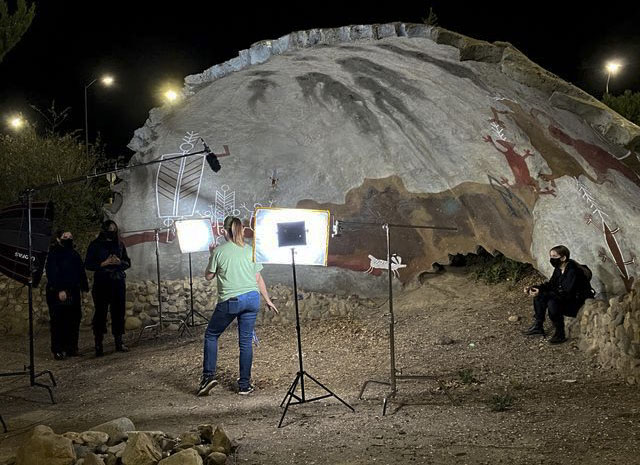
Having to accommodate all the new regulations of social distance learning has not only taken a toll on the performance itself, but also on the whole department. Since the performance has been changed to a podcast, the use of the Costume Department, Props Department and Scene/Set Design Department have all been discarded.
Luckily, the filming of the trailer allowed some of the costumes, props and sets to be shown off.
The changes of social distance learning has taken the biggest toll upon the actors. Many of the actors including Isabelle Delman, who plays Lady Macbeth, have found it hard to draw inspiration for their roles while acting through a screen.
“I know for me, the hardest part of being online is the lack of eye contact when acting. Because usually in a scene I think a big part of the little tiny connection is; are we making eye contact or is the other character looking away, am I chasing them down, are they chasing me down. With just that very small detail, that can be very huge in a scene and that is something you can’t quite replicate on Zoom,” said Delman.
The challenge of acting through a screen has driven the actors to find new ways of finding inspiration without feeding off of one another’s energy. Now the screen has been taken away from them and they are left to face the challenges of acting only through the dialogue.
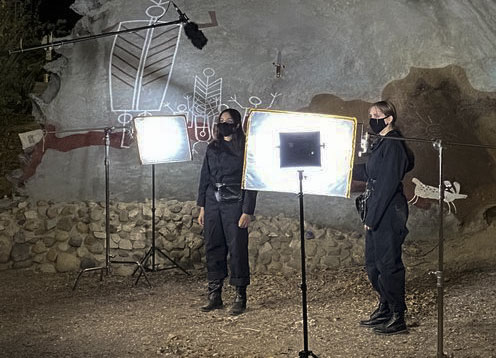
The decision to make the performance into a podcast came from Fagan, but it could not have been executed without the help of Moorpark College Alumni and Sound Designer, Nichole Baffone.
“Nichole’s expertise and experience with sound design is easily going to make this podcast better, more professional and of higher quality than anything I alone, as director, could have executed. I am so grateful to have her back not as the student she once was, but as a professional expert,” said Fagan.
Baffone has taken charge in setting up a socially distanced recording space for all the actors. Her resourceful idea entails a drive-up podcast recording studio.
“I came up with an ingenious idea to be able to record people, get a high quality of sound recording that I can work with and still be able to be safe with the pandemic,” Baffone claimed.
Each actor drives up in their own car, are set up with a rig at Baffone’s house and a boom is set up with a microphone in the actor’s windows under an easy up tent. The car’s doors and windows are closed while a moving blanket is placed over the window to drown out surrounding sounds. The recordings are best made at night in a car due to the car’s great acoustics.
Baffone is not only acting as the sound designer, but is also taking the lead as the audio recording engineer and editor. Since Baffone is handling three different jobs, release dates are still to be determined along with the platform the performance will be available.

